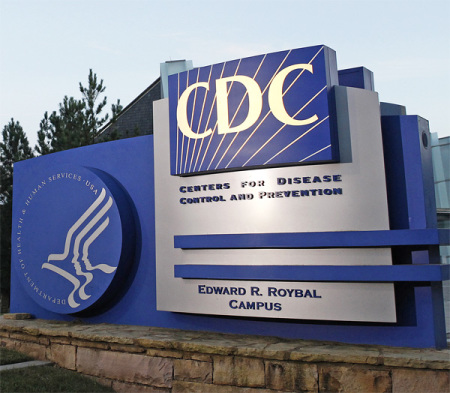More youth are dying of suicide, overdose than COVID-19 during pandemic: CDC director

Suicide and drug overdoses are killing more young people than COVID-19 as the two pre-existing epidemics have been exacerbated by the coronavirus pandemic, Centers for Disease Control and Prevention Director Robert Redfield warns.
In an interview with the Buck Institute for Research on Aging earlier this month, Redfield laid out that suicide and drug overdose have claimed more young lives during the pandemic than COVID-19, a disease that has been attributed to thousands of deaths nationwide this year.
"We're seeing, sadly, far greater suicides now than we are deaths from COVID,” Redfield explained. “We're seeing far greater deaths from drug overdose that are above the excess that we had as background than we are seeing the deaths from COVID.”
A June survey from The Addiction Policy Forum reported a 20% increase in substance abuse with 34% of respondents experiencing a change in their treatment and recovery due to the pandemic.
The American Medical Association also voiced concern in a July 20 report stating that over 35 states have reported increases in “opioid-related mortality as well as ongoing concerns for those with a mental illness or substance use disorder.”
Suicide is the second leading cause of death among people ages 10 to 34 in the United States, second only to “unintentional injury,” according to the CDC. Suicide took the lives of nearly 15,000 people within that age bracket in 2018, CDC data suggests.
Last year, the public health institute reported that the suicide rate for kids 10 to 14 has nearly tripled in the last decade while the suicide rate among older teenagers has increased by 76%.
In his July 14 interview, Redfield emphasized the absence of schools for the increase in suicides, overdoses and general mental health difficulties faced by young people during the pandemic.
He also said resources to combat these problems have been overworked by COVID-19 or are too dangerous to access.
“You know, a lot of kids get their mental health services, over 7 million, in school,” Redfield explained. “A lot of people get food and nutrition in schools. Schools are really important in terms of mandatory reporting of sexual and child abuse. Obviously, socialization is important.”
Redfield said that the "cost to our nation in continuing to keep these schools closed is substantial."
Susan Tellone, the clinical director at The Society for Prevention of Teen Suicide in New Jersey, told The Christian Post that there is an increased concern surrounding suicide and overdose, most of which has come from virus-induced chronic stress.
All people experience acute stress, which is a short-term feeling that is not always negative, she said. Chronic stress, though, is ongoing stress that lasts months to years and can lead to an increase in mental health issues like depression. The increase in the U.S. is caused in part by widespread chronic stress, Tellone said.
“COVID has put all the country, not just youth, in a state of chronic stress,” she explained. “That’s been across the board. I’ve been saying we’re all in the same storm, but in different boats.”
According to Tellone, people are experiencing stress in different ways. While some are heavily impacted by physical isolation, others feel the stress from financial burdens or loss of work.
For young people, the pandemic has provided a variety of losses.
High school seniors have lost the opportunity to partake in graduation ceremonies and milestones. Social interactions have changed form during the virus, which has become a difficult transition for some.
“Some are stuck in toxic environments where they’re around domestic, substance or sexual abuse,” Tellone stated. “It’s the uncertainty that creates this stress. You can’t make plans or know the future. There’s not an end in sight and it is getting to feel exhausting for some people.”
This is not true for all young people, though. Some young people have enjoyed doing school work from home and have felt less pressure since COVID-19 began, which Tellone defined as a “mixed bag” of reactions toward COVID-19 closures.
Despite the increased demand for mental health resources to combat the increased suicides and overdoses, Tellone said the virus presents an opportunity to end the stigma of talking about mental health. She believes this could lead to further advancements in study and treatment.
“Because we know mental health is going to be an issue, we could all understand that if you don’t have financial means there is still help,” she said. “It’s an opportunity to recognize that mental health is as important as physical health.”





















